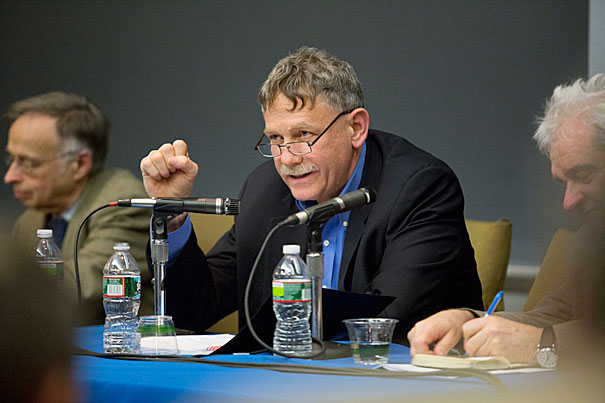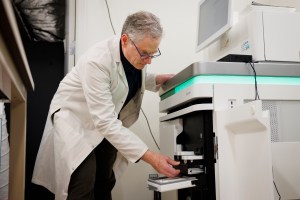Science & Tech
-

How AI deepfakes have skirted revenge porn laws
Limits unclear when explicit images of individuals look real, but are digitally generated
-
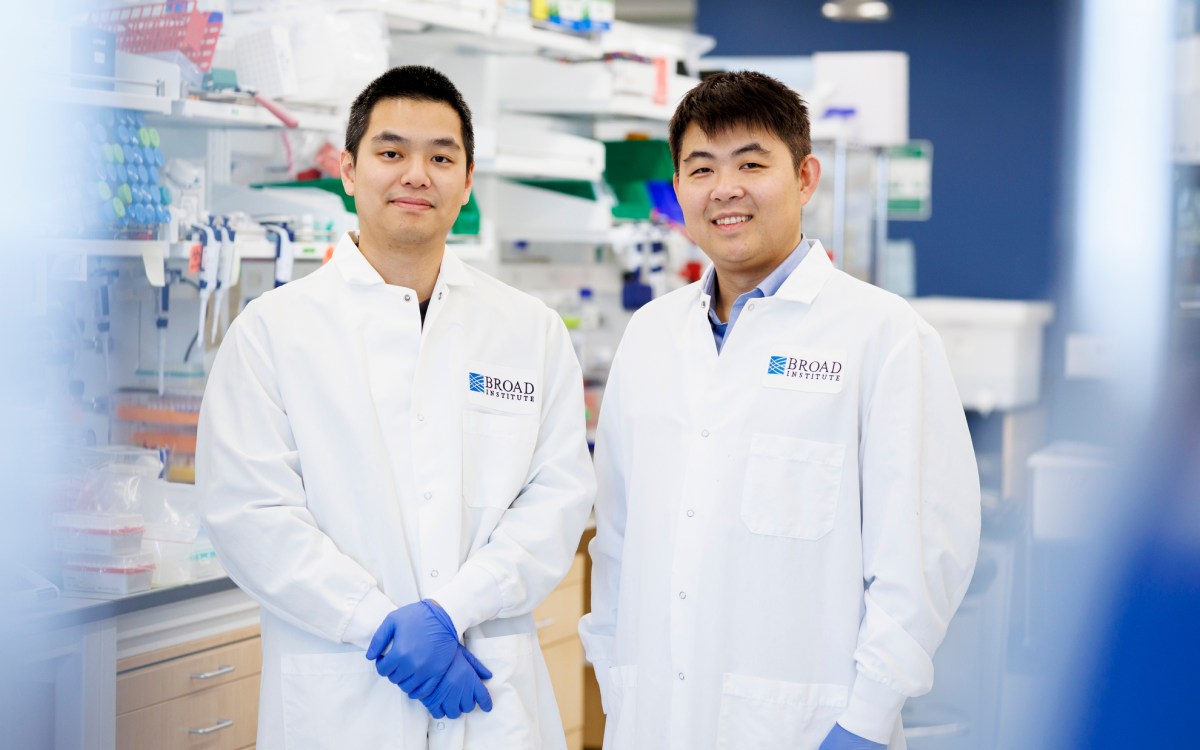
How did that cancer cell become drug-resistant?
Researchers find way to create microscopic archives of gene activity to gain insights into how, why changes happen

-
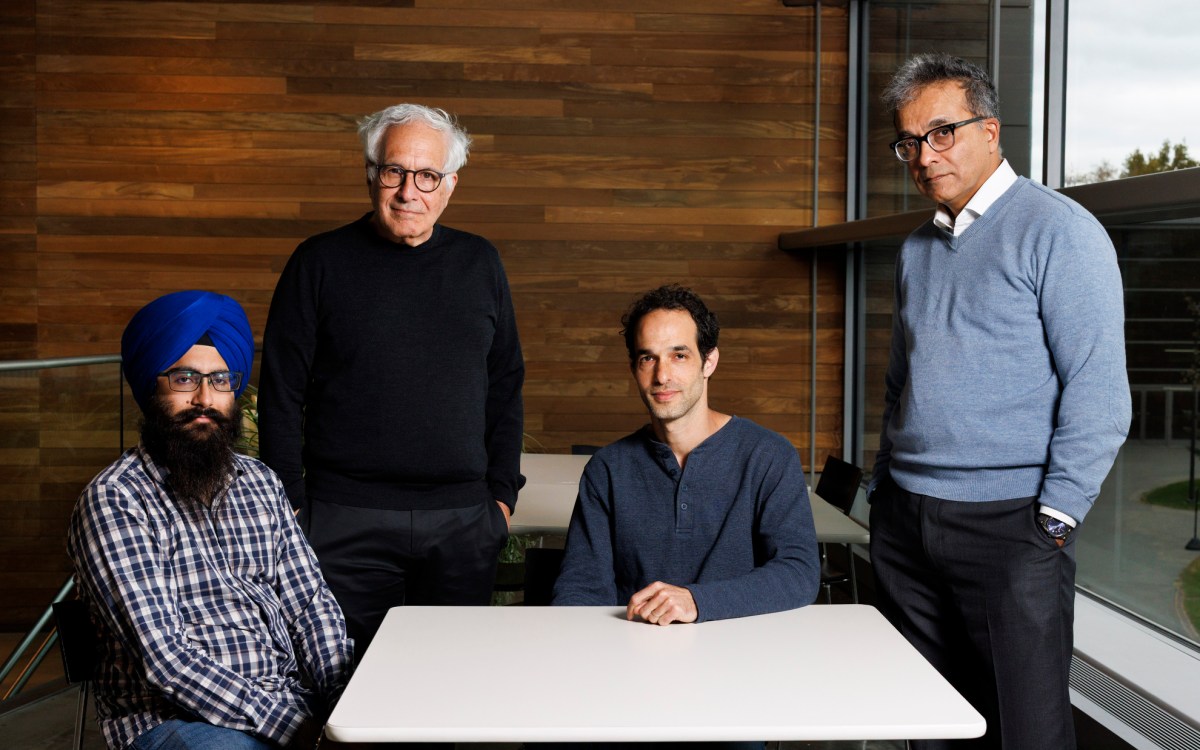
Want to speed brain research? It’s all in how you look at it.
New AI-enhanced scanning method promises to boost quest for high-resolution mapping
-
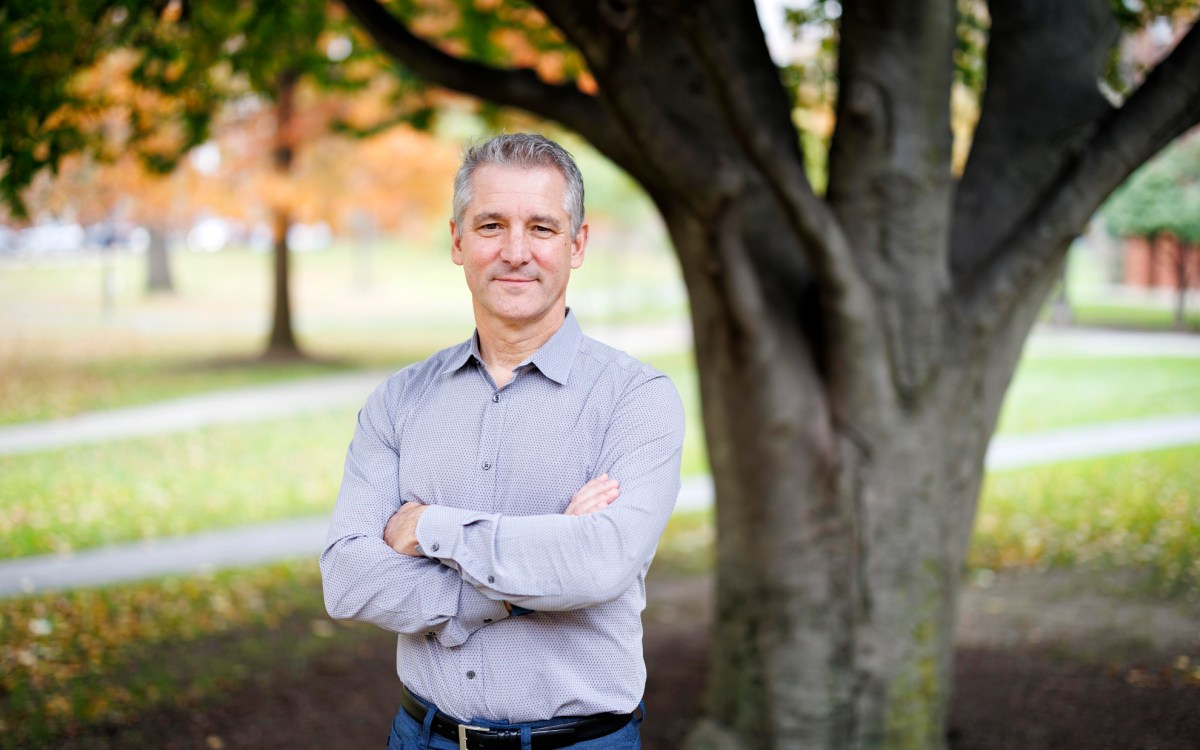
-
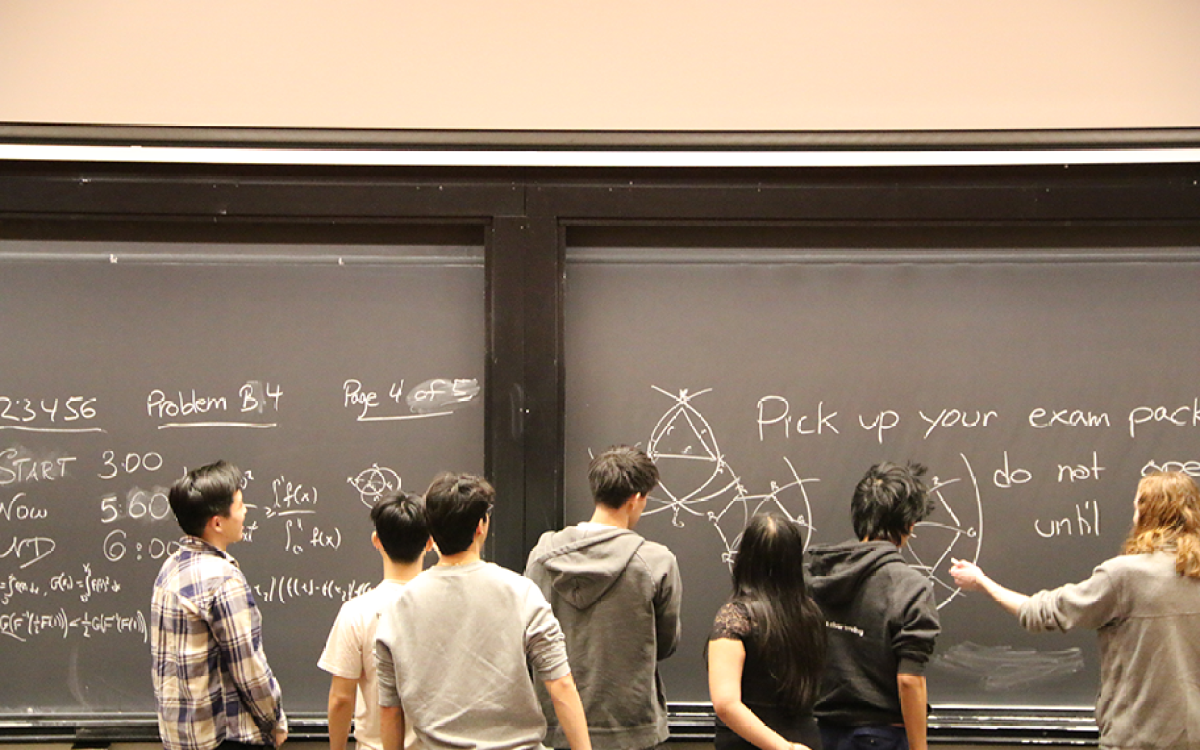
‘It just feels good when you solve the hard problems’
Why do students volunteer to take this notoriously difficult math exam? For the fun of it.
-
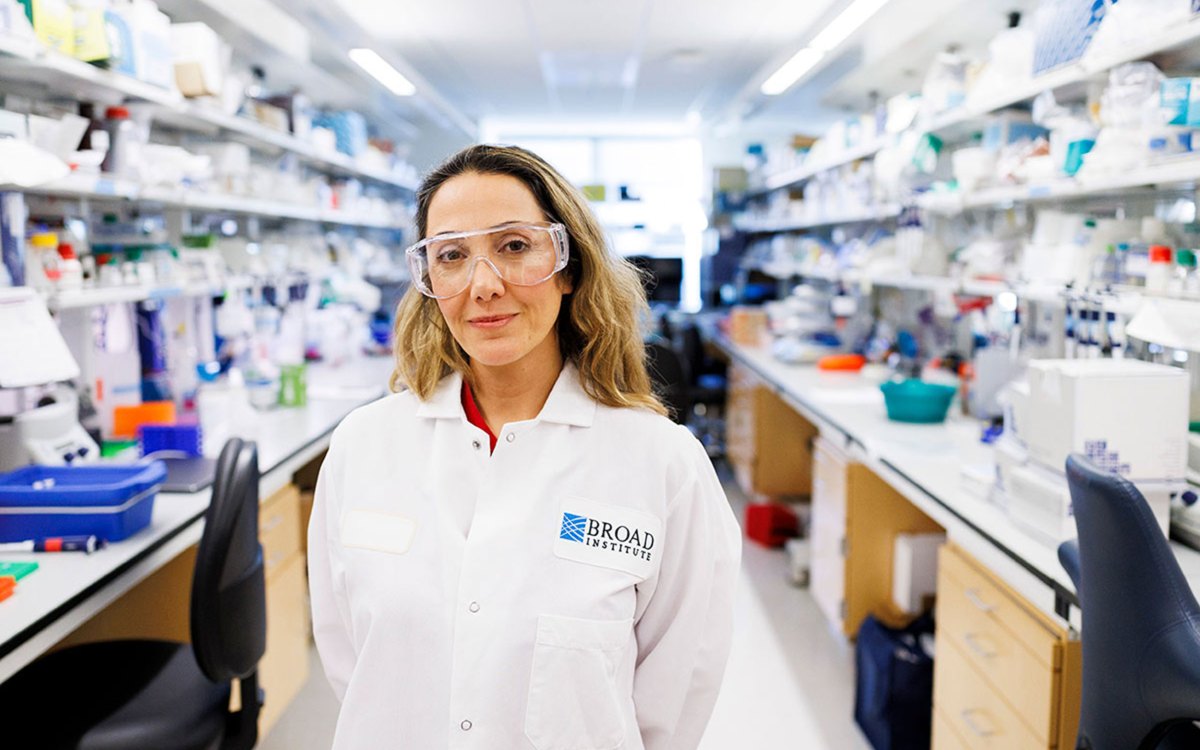
Stopping the next pandemic
Disease surveillance network faced ‘existential cliff’ despite proven success. Then came the $100 million.
-
Insignificant, with a lousy future
Theoretical physicist Lawrence Krauss described a universe with mysterious particles popping in and out of existence, in which the discoveries of dark energy and dark matter have made mankind more insignificant than ever.
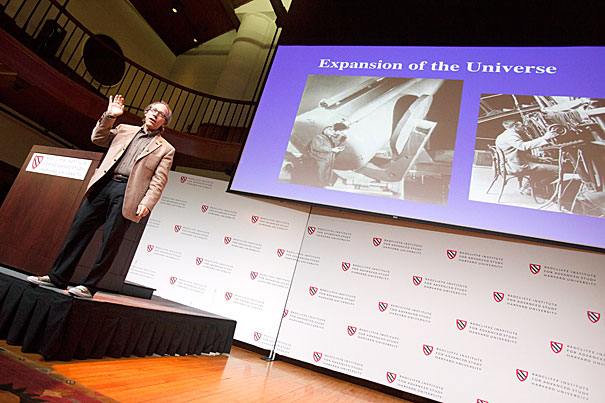
-
Pitcher plants provide tipping point
New research out of the Harvard Forest offers insight on exactly when the tipping point occurs that can disrupt the intricate web of life in a lake.
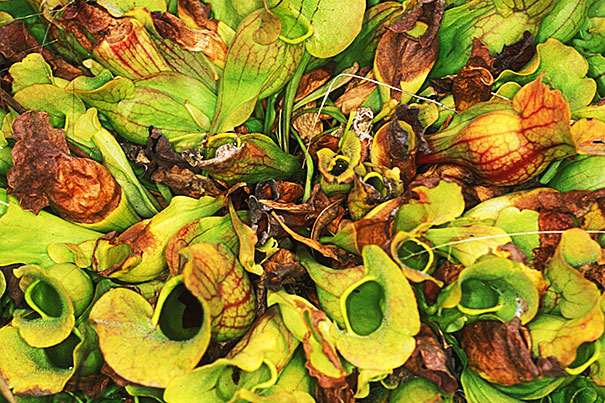
-
Earth feels impact of middle class
The rise of the middle class is a bigger environmental challenge than the rising global population, according to Sir David King, the former science adviser to the British government, who urged the adoption of sustainable development as a way to manage growing global demands in a finite world.
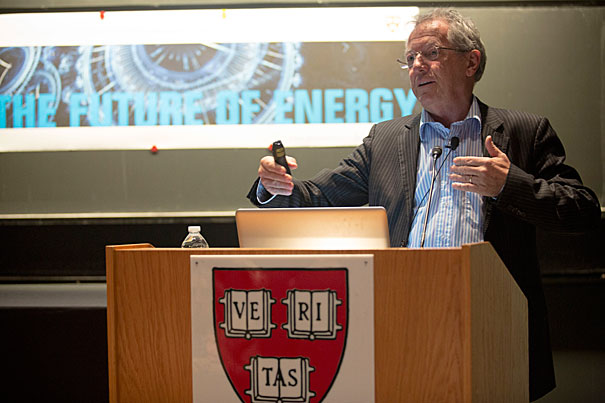
-
Water worlds surface
Astronomers have found a planetary system orbiting the star Kepler-62. This five-planet system has two worlds in the habitable zone — the distance from their star at which they receive enough light and warmth for liquid water to theoretically exist on their surfaces.
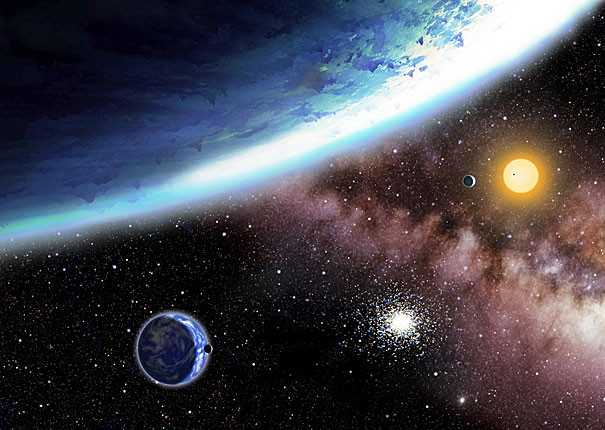
-
Putting the stars within reach
Two communications specialists at the Chandra X-Ray Observatory have authored a guide to the universe, aiming to show people around a universe they say belongs to us all.
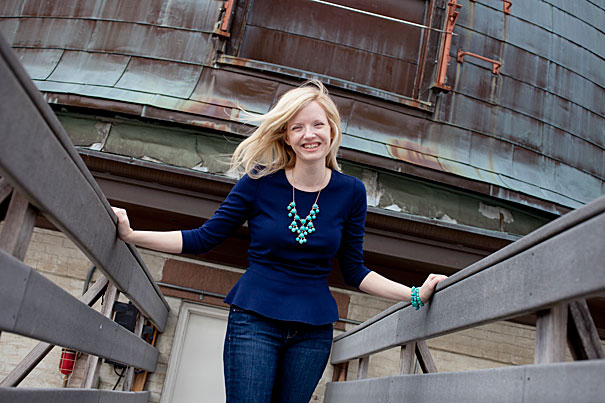
-
Warmth across 600 years
Harvard researchers are adding nuance to our understanding of how modern and historical temperatures compare.
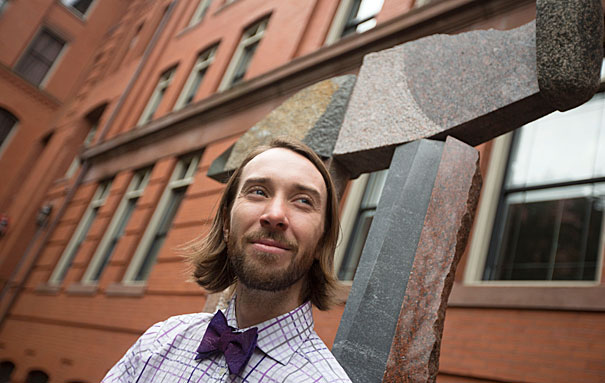
-
Stars align at astronomy reunion
Harvard astronomers past and present gathered in Cambridge Friday (April 5) for the first-ever reunion of the Harvard Astronomy Department.
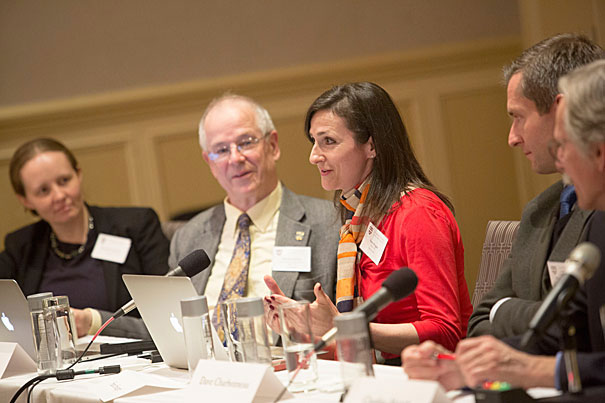
-
Fine-tuning online education
Andrew Ho, research director of HarvardX and an assistant professor at the Harvard Graduate School of Education, spoke with the Gazette about a recent study that found that interspersing online lectures with short tests improved student performance.
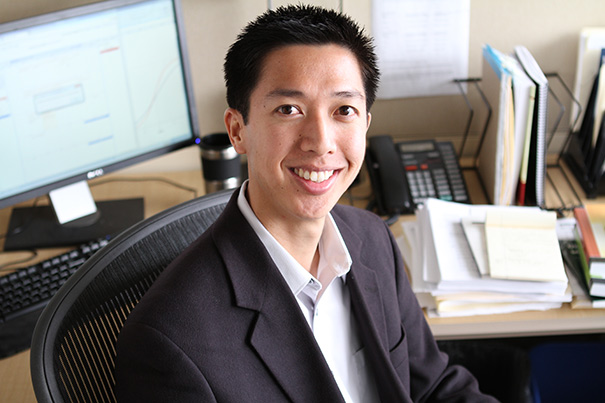
-
Lessons from the long-lived
A gerontologist researcher says his work allows him to connect with “vibrant, engaged, healthy, exciting, and active older people.” He says they live more in the now than other people might believe, and value that.
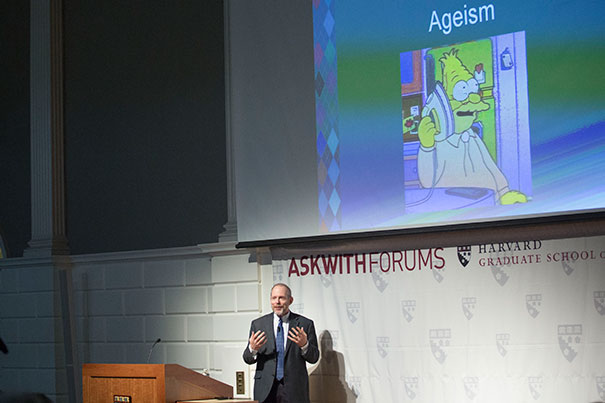
-
Online learning: It’s different
By interspersing online lectures with short tests, student mind-wandering decreased by half, note-taking tripled, and overall retention of the material improved, said Daniel Schacter, the William R. Kenan Jr. Professor of Psychology, and Karl Szpunar, a postdoctoral fellow in psychology.
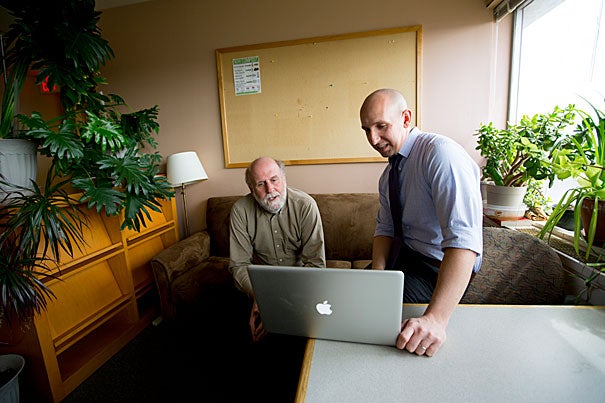
-
Evolutionary oomph
Scientists may soon be able to turn to one of the most powerful forces in biology — evolution — to help in their quest to develop new synthetic polymers.
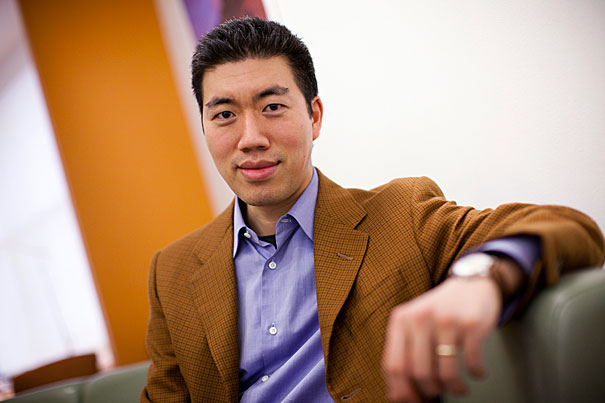
-
Tweaking the universe
In a question-and-answer session, Harvard astronomy chair Avi Loeb explains the new data from the European Space Agency’s Planck satellite.

-
Space and climate change
A lecturer from the Harvard-Smithsonian Center for Astrophysics says that “dark clouds of gas and dust have the potential to alter Earth’s climate.
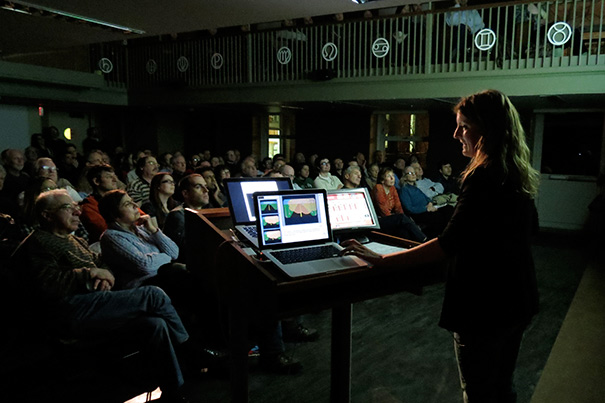
-
Sharper view of matter
In a breakthrough that could one day yield important clues about the nature of matter itself, a team of Harvard scientists has measured the magnetic charge of single particles of matter and antimatter with unprecedented precision.
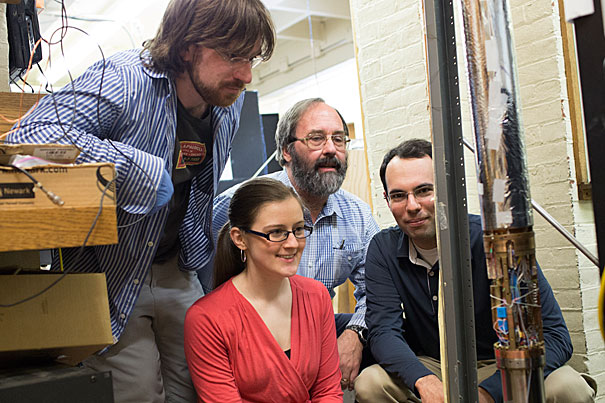
-
The power of ‘thanks’
In “Sidetracked: Why Our Decisions Get Derailed, and How We Can Stick to the Plan,” Francesca Gino, an associate professor at Harvard Business School, explores a range of fascinating subjects, including how emotions influence decisions and the often-thorny matter of understanding the perspectives of others. Blending social science and real-world examples, Gino’s book also highlights the science of gratitude.

-
A vision of floating cities
With the world’s sea levels rising and posing a long-term threat to coastal cities, Nigerian architect Kunlé Adeyemi suggests building houses that float, but, taken together, still function as a community.
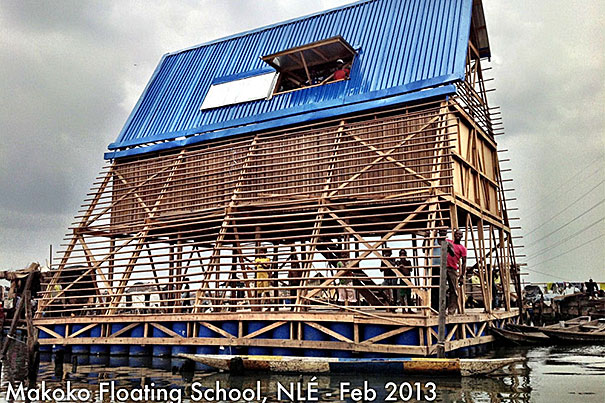
-
Austin sees Crimson
Stamping Harvard’s digital presence on the South by Southwest Interactive Festival, more than 250 alumni, students, faculty, and guests convened on Icenhauer’s for the second annual Digital Harvard in Austin at SXSW, hosted by the Harvard Alumni Association.
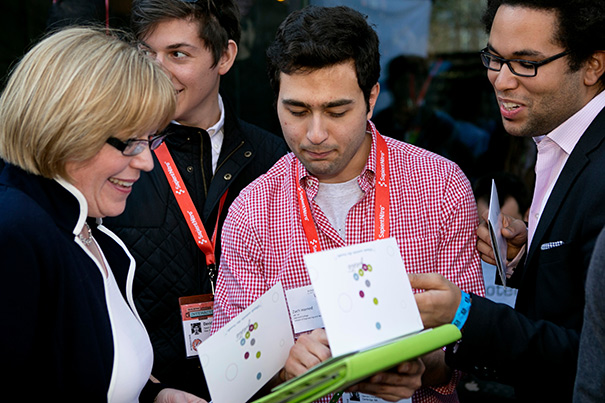
-
Dimensions of ancient Egypt
The Temple of Amun-Ra at Karnak isn’t the most famous ancient site in Egypt — that honor goes to the Pyramids at Giza — but newly developed reconstructions using 3-D virtual reality modeling make clear its architectural importance and rich history.
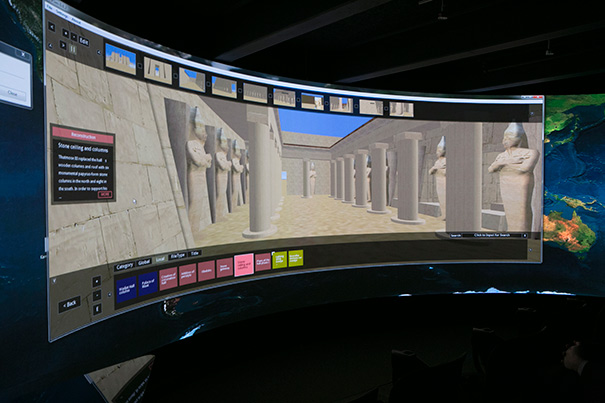
-
Higher education on the move
In online education, the future is now. That was an overriding message Harvard and MIT hosted a summit on March 3 and 4 titled “Online Learning and the Future of Residential Education.”
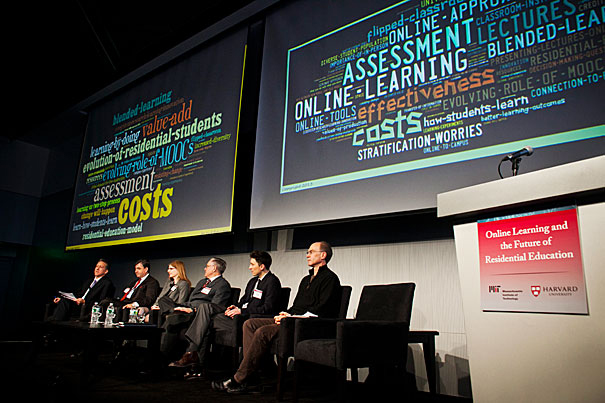
-
Alpha, beta, Zeega
Three Harvard affiliates are launching Zeega, a software platform that makes it easy for Internet storytellers to blend audio, images, and text from the riches of the Web.

-
Schoolyard scourge
Scholars convened at the Harvard Graduate School of Education to explore the topic of bullying and potential ways forward.
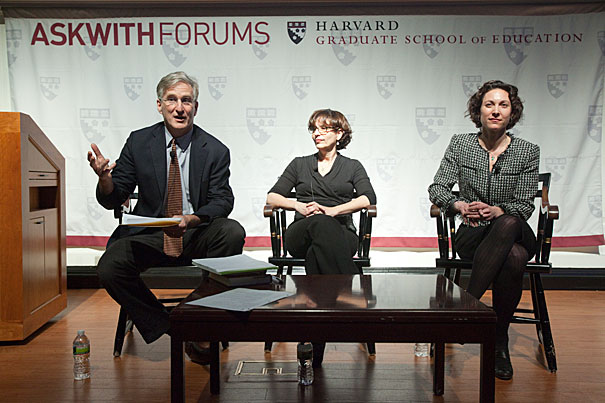
-
A learner’s guide to the universe
Harvard’s Avi Loeb is helping prepare the next generation of astronomers with a new textbook, “The First Galaxies in the Universe.”
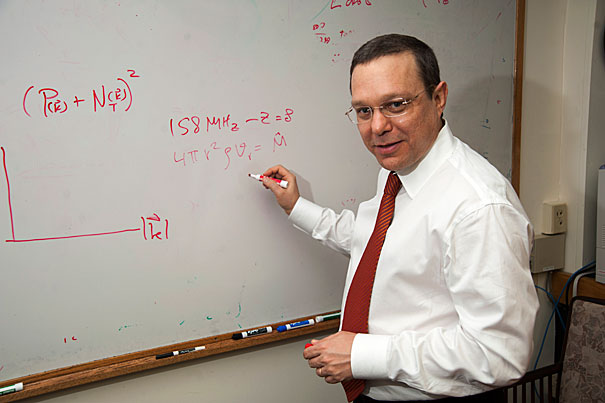
-
Peering into our blind spots
Harvard psychologist Mahzarin Banaji and longtime collaborator Anthony Greenwald condense three decades of work on the unconscious mind in “Blindspot: Hidden Biases of Good People.”
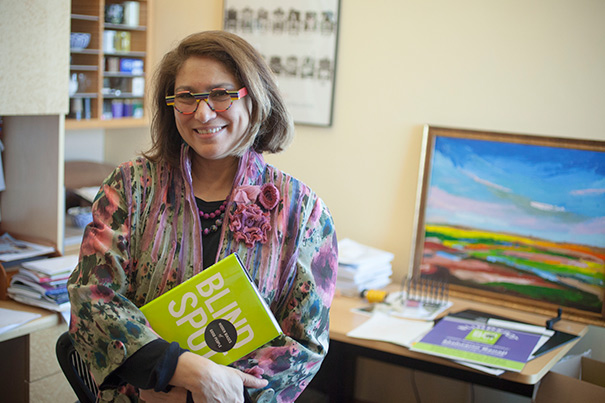
-
Money, marriage, kids
There may be a formula for happiness after all, says Daniel Gilbert, Harvard professor of psychology and best-selling author of “Stumbling on Happiness,” who presented an impressive array of scientific research from the disciplines of economics, psychology, and neuroscience to assess his mother’s recipe for happiness.
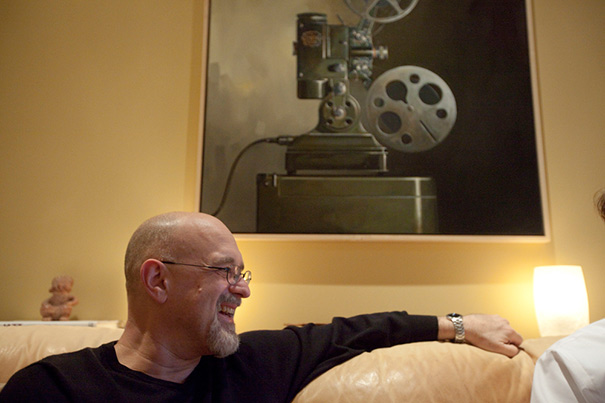
-
Weather warning
A report co-authored by Professor Michael McElroy and D. James Baker, a former administrator of the National Oceanic and Atmospheric Administration, connects global climate change, extreme weather, and national security.
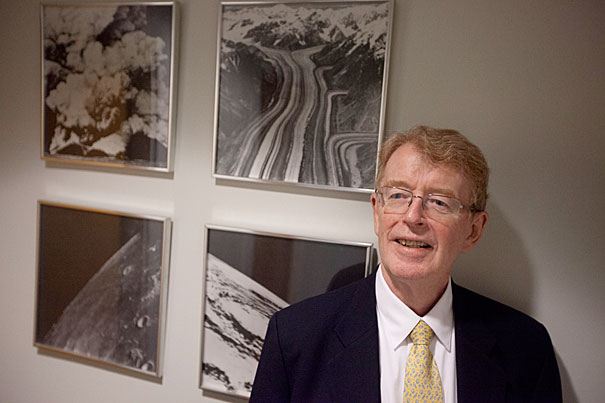
-
A clarion call for science
Harvard President Drew Faust called for the scientific community to unite in its efforts to press Congress for continued federal research support during a speech to the annual meeting of the American Association for the Advancement of Science.
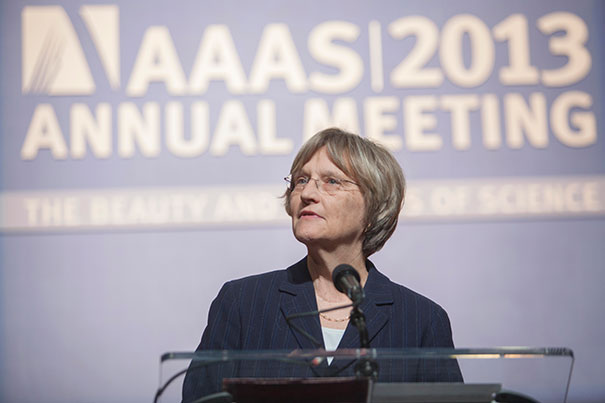
-
A groundswell on climate change
More vigorous grassroots social action is needed to drive the reforms that could address climate change, panelists said during a discussion at Sanders Theatre.
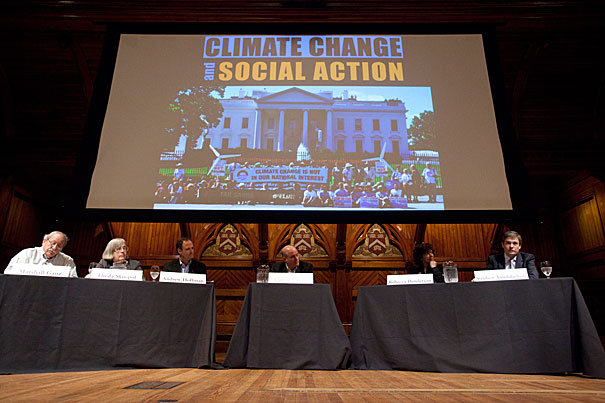
-
Using explosions to power soft robots
Using small explosions produced by a mix of methane and oxygen, researchers at Harvard have designed a soft robot that can leap as much as a foot in the air.
-
Robots with lift
Using small explosions produced by a mix of methane and oxygen, researchers at Harvard have designed a soft robot that can leap as much as a foot in the air. That ability to jump could one day prove critical in allowing the robots to avoid obstacles during search and rescue operations.
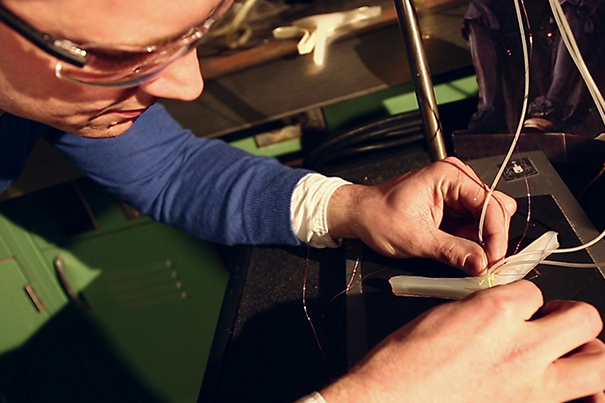
-
New ways to fund science
As research funding dwindles, scientists need to rethink their methods for supporting the most promising projects, and how they communicate their work to the public, Nobel Prize–winning geneticist Paul Nurse told an audience of Harvard scientists.
